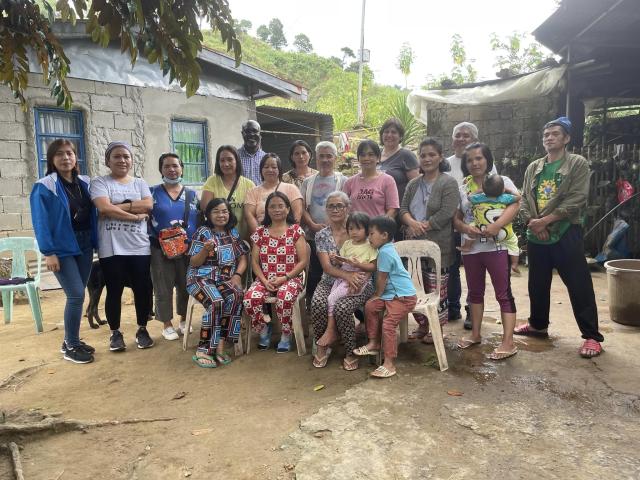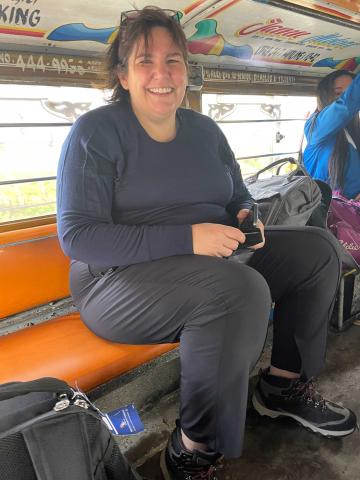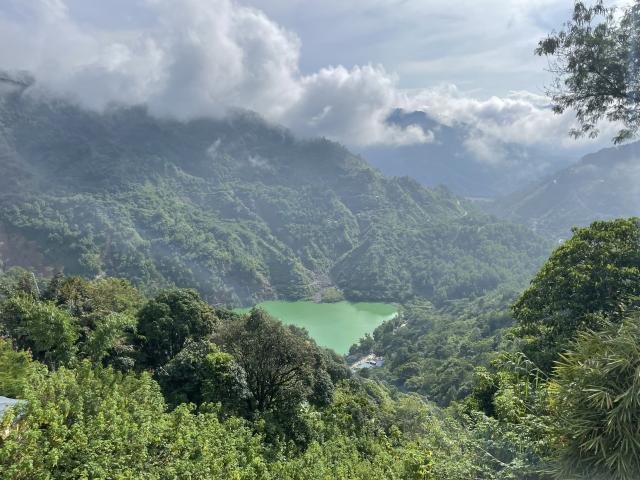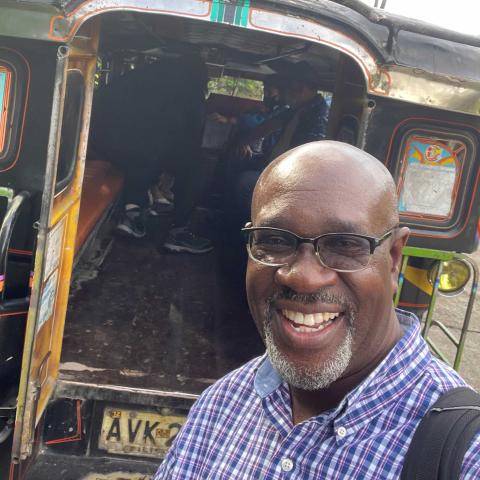Japhet Ndhlovu and Moderator Carmen Lansdowne visit church partners in the Philippines struggling for justice against mining corporations.

In October 2022, I had a rare opportunity to accompany Moderator Carmen Lansdowne on a trip to the Philippines to meet United Church Mission & Service partners. The Moderator had a prior commitment to attend a World Communion of Reformed Churches (WCRC) meeting in Manila. We, from the Church in Mission Unit, and Global Partnership team in particular, took advantage of her presence in the Philippines to tag along, and together with our partners came up with an exciting itinerary.
Just before leaving Manila for Baguio in the north, Moderator Carmen and I had a unique opportunity to meet with Bishop Sameer of the Diocese of Durgapur of the Church of North India. He too attended the same WCRC meeting that the Moderator was attending. It was a bonus for our trip, as we had an opportunity to touch base with what was happening with the anti -human trafficking program of the diocese, as well as hear news from the wider church in India.

The Moderator got a chance to ride in a jeepney on our way to visit a mining site. The jeepney has been a main source of transportation for many Filipino people for many years. It now faces eminent extinction as the government wants to modernize the transport industry. The debate rages on in terms of the merits and demerits of the impending action.
The mining corporations have continued to have adverse effects on the environment in places where they are doing explorations or actual mining activities for precious minerals. They have displaced indigenous people from their ancestral lands and made them tenants on their own lands. The mining companies now own the land, with the land titles they have awarded themselves according to their colonial rules they created when they colonized the lands.
The dams created by mining operations continue to have a ripple effect on the ecosystem. The people continue to struggle for the right to self-determination and ownership of their traditional lands. This struggle feels like an uphill battle. They have had a few wins, such as stopping the expansion of dams which release toxic wastes into their freshwater rivers.

In that context, it is sometimes hard to see how people can have anything to celebrate. Yet, that is exactly how our partners who are seeking for justice have decided to respond. They gain strength in their advocacy work from a case in which the people barricaded a survey company for six months. That company and their huge mining machinery could not do any work for that period of time. The power of the people succeeded in blocking the company from surveying their land for prospective gold. Yet, these companies still somehow find new tactics to achieve their goals. Sometimes companies disguise themselves as gravel companies for road construction, when their actual intention is surveying for gold. Local women and youth groups continue to keep alive the story of the struggle.
Most of the corporations misinterpreted the hospitality of the people and also took advantage of people’s illiteracy levels. Doesn’t that sound similar to the struggles of Indigenous people of Canada, who were taken advantage of by White settlers who misunderstood their hospitality?
With so many examples, these multilateral companies have been known to collude with the government of the day and divide the people by using the power of money. A few community leaders have changed their allegiance to support multilateral companies because of the money and other rewards they have received. These few leaders pretend to represent the people and end up selling away their rights to self-determination for a bowl of soup (using the biblical image of Esau, who sold off his birth right to his brother in Genesis 25:29-34).
In one of the villages we visited, one man was so afraid of our visit, thinking we were from the mining company and would be seeking the demolition of their houses. They have seen that before and so they live in constant fear. We met with women connected to the traditional small-scale mining work. The practice of traditional mining, though being old and sustainable, was banned by the government which caused a lot of negative effects on people’s livelihoods.

During the days of COVID lockdowns and restrictions, some people went to the city for day labor to get income to sustain their families. Some have learnt new trades and have been making and selling crafts and plants. The mining corporations have continued buying off land from some land owners whose lands have not yet been impacted by mining activities. The companies then turn around and start charging people rent. Even if it may be less than a dollar per month, the rent is significant in sending a message that these indigenous people have now become tenants on their own ancestral lands.
Clean safe water is a challenge, so they wait for the typhoons come in each year in order to harvest rain water. On the flip side of things, the same typhoons leave many families struggling as they lose property and farm lands and some even face the risk of death, which has happened in some cases. Land is life for indigenous people. This right is constantly under threat as the mining corporations seek to expand and turn their lands into new cities. The Mining Act of 1995 gives the companies right to land through title and Indigenous communities are considered squatters on their own ancestral domains.
Since the last time I visited the Philippines before COVID, governments in the Philippines have changed from Duterte regime to the Marcos, Jr. regime, but the pain of loss continues.
— Rev. Dr. Japhet Ndhlovu is the Executive Minister for the Church in Mission unit of The United Church of Canada.
The views contained within these blogs are personal and do not necessarily reflect those of The United Church of Canada.